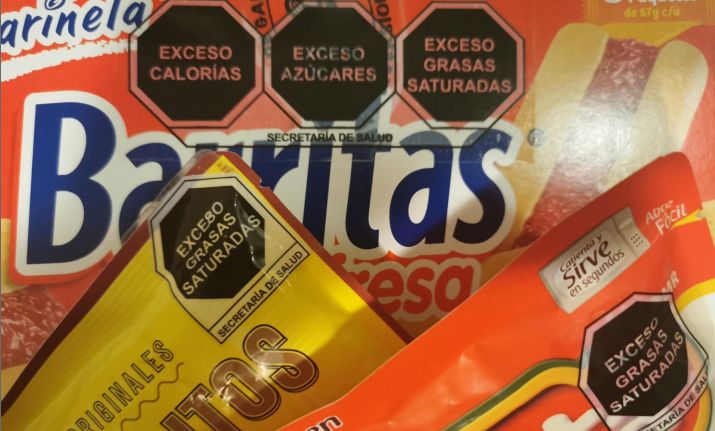More than a year after Mexico’s food warning label law took effect, sales of junk food and sugary beverages have not declined significantly, according to a market research firm and a business group.
In fact, sales of unhealthy products have increased in some cases, data shows.
The law, which requires black informational octagons to be placed on packaged foods that are high in saturated fat, trans fat, sugar, sodium or calories, came into force in October 2020, although companies had until December to phase in the new warning labels to avoid fines.
According to market research firm Kantar México, large food companies have not seen a major drop-off in the sale of products with warning labels.
Fabián Ghirardelly, a Kantar México director, said the firm’s weekly monitoring of the purchases made by 8,000 households in the first nine months of the year hasn’t detected any clear or significant impact on their buying patterns due to the labeling law.
A lot of changes in consumer behavior were detected last year but they were related to the pandemic and the lockdown, he told the newspaper El Universal.
Ghirardelly also said it’s worth noting that the labeling law took effect at an atypical time – at the end of the first year of the pandemic.
Jonás Murillo, vice president of the food, beverages and tobacco commission of industry confederation Concamin, also said that no major changes in consumer behavior have been detected. “Although there has been some impact in some categories, sales didn’t drop off [completely],” he said.

Data from national statistics agency INEGI shows that the sale of three products high in sugar – candy, chocolate and soda – were up in September compared to the same month of last year.
Murillo said that some food companies changed the ingredients in some of their products so that warning labels didn’t have to be placed on their packaging. As a result they became different products and consumers sought out alternatives that were not as healthy but presumably tasted how they expected – and wanted – them to taste.
Murillo said that one problem with the labeling law is that it doesn’t distinguish between levels of unhealthiness.
“… A [packaged] salad with dressing has the same stamps as a soda, but in reality there is a great difference between consuming one or the other,” he said.
Although sales of unhealthy products don’t appear to have significantly declined, the Economy Ministry believes that the labeling law has achieved its objective. Consumers are now more informed and empowered to make better choices, said regulation director Alfonso Guati Rojo.
Alejandra Contreras of consumer rights group El Poder del Consumidor said that while the food and beverage industry has complied with the labeling law, a government campaign is needed to help children understand the different warnings and why a product might have more than one.
“A massive national-level campaign is needed so that children know why [some products] have two or three warning stamps,” she said.
TYT Newsroom



